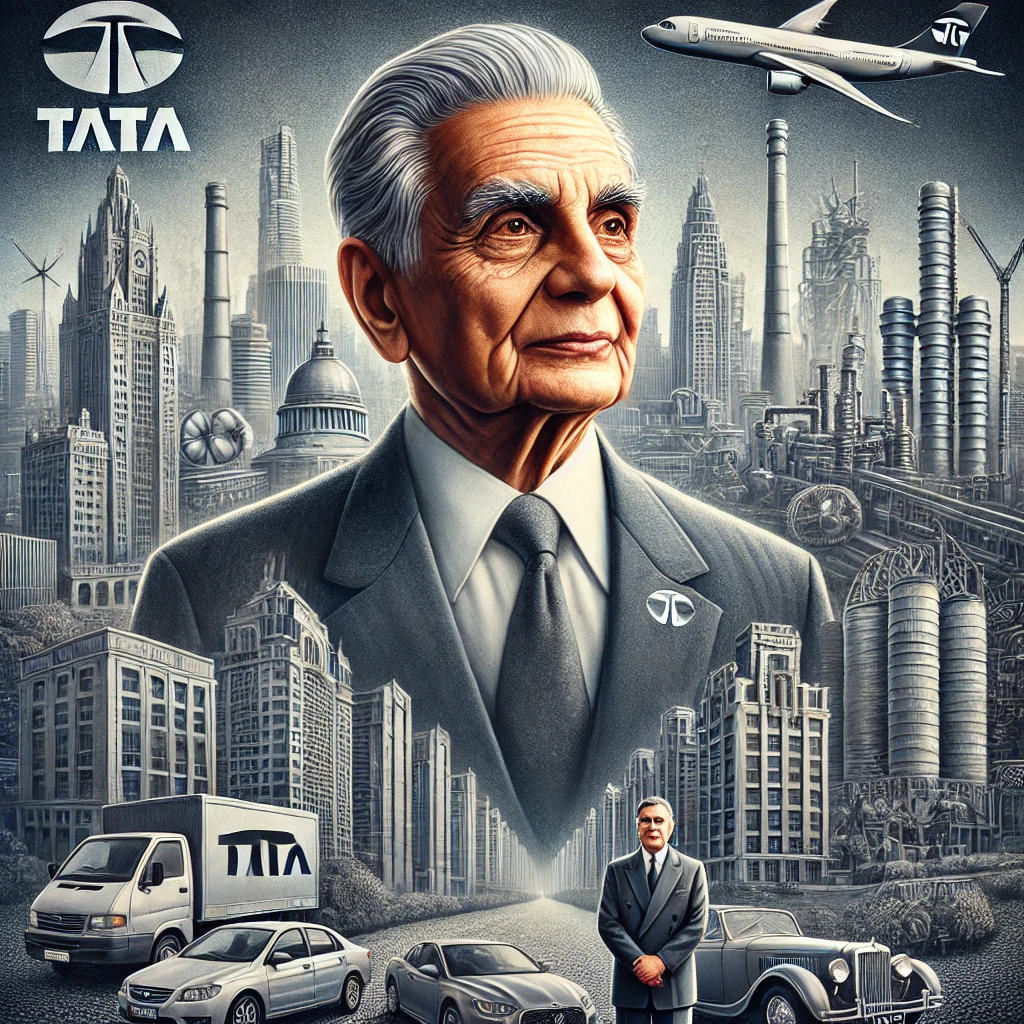When you think of leadership, humility, and visionary thinking in Indian business, Ratan Tata is a name that resonates globally. As the former chairman of Tata Sons and the head of the Tata Group, he transformed the conglomerate into one of the world’s most respected business groups. His journey, from overcoming family expectations to leading a global empire, is nothing short of inspirational.
This article delves deep into Ratan Tata’s life, exploring his personal values, business strategies, and the key milestones that made him a legend. Let’s take a journey through the story of one of India’s most beloved industrialists.
Early Life and Education
Ratan Naval Tata was born on December 28, 1937, in Mumbai, into one of India’s most illustrious families. Despite his affluent background, Ratan Tata’s early life was marked by personal challenges, including the separation of his parents when he was just 10 years old. Raised by his grandmother, Lady Navajbai Tata, Ratan imbibed the values of humility and simplicity from an early age.
He pursued his education at the prestigious Campion School in Mumbai, followed by the Cathedral and John Connon School. Later, he went on to study at Cornell University, where he earned a degree in architecture and structural engineering. In 1975, he completed the Advanced Management Program from Harvard Business School, which equipped him with the leadership tools necessary for the challenges ahead.
The Road to Leadership
Ratan Tata’s entry into the Tata Group was not immediate. After his education, he returned to India and joined Tata Steel in 1961, starting from the shop floor, shoveling limestone and learning the nuances of industrial work. Unlike most heirs to business empires, Ratan chose to rise through the ranks by proving his mettle rather than relying on his family name.
In 1991, he took over as chairman of Tata Sons, succeeding J.R.D. Tata. It was a period of transition, as India’s economy was opening up, and Ratan was tasked with steering the Tata Group into a new era. His vision was clear: to make the Tata Group a global player.
The Globalization of Tata Group
Under Ratan Tata’s leadership, the Tata Group made several strategic acquisitions that placed it on the world map. Some of the most notable ones include:
- Tata Motors Acquires Jaguar Land Rover (2008): This acquisition was a game-changer for Tata Motors, helping it break into the global luxury automobile market. Many skeptics doubted the move, but Ratan Tata’s vision proved right, as JLR became a profitable and iconic brand under Tata’s stewardship.
- Tata Tea Acquires Tetley (2000): This was the first major international acquisition by an Indian company, and it marked the beginning of Tata Group’s globalization strategy. The Tetley acquisition made Tata Tea one of the largest tea companies in the world.
- Corus Acquisition by Tata Steel (2007): At $12.1 billion, this was one of the largest takeovers by an Indian company. It made Tata Steel one of the top steel producers globally and established India as a formidable player in the global steel market.
Through these bold moves, Ratan Tata expanded the group’s footprint across 100 countries, turning Tata Group into a $100 billion conglomerate. His risk-taking, yet calculated approach, earned him global recognition.
Ratan Tata’s Leadership Style
What sets Ratan Tata apart from other industrialists is not just his business acumen but also his leadership style. He is known for being a man of few words but immense action. Unlike aggressive CEOs who dominate the news, Ratan Tata has always been measured, leading with quiet confidence. He is famous for saying, “I don’t believe in taking right decisions. I take decisions and then make them right.”
His leadership style is based on integrity, transparency, and inclusivity. Even in challenging times, such as during the 2008 global financial crisis, Ratan Tata managed to lead his companies without laying off employees—a testament to his commitment to ethical leadership.
Philanthropy and Social Impact
Ratan Tata’s legacy is not just confined to boardrooms and business deals; it also extends to philanthropy. A significant portion of Tata Group’s earnings is channeled into charitable trusts that focus on areas like education, health, and rural development. Under his guidance, the Tata Trusts funded various initiatives, including cancer treatment centers, scholarships for Indian students studying abroad, and clean water projects for rural areas.
One of the most notable projects is the Tata Nano, the world’s most affordable car, which was launched with the vision of providing every Indian family with a vehicle. Though the car didn’t achieve commercial success, it highlighted Ratan Tata’s commitment to addressing the needs of the Indian middle class.
Challenges and Triumphs
Like any great leader, Ratan Tata faced numerous challenges. One of the most significant was the Tata Nano project, which faced criticism for safety concerns and market miscalculations. Despite the setbacks, Ratan Tata remained steadfast, stating that his goal was to give the common Indian family an affordable, reliable car.
Another challenge came during the acquisition of Corus Steel, as the global market for steel plummeted soon after the deal. However, Ratan Tata weathered the storm, restructuring the company and maintaining its global reputation.
Despite these challenges, Ratan Tata’s unwavering belief in innovation, ethical leadership, and long-term vision helped him overcome adversities and establish the Tata Group as a symbol of Indian excellence on the world stage.
Retirement and Legacy
Ratan Tata stepped down as chairman of Tata Sons in 2012, leaving behind a legacy that few can match. Today, he continues to inspire as the chairman emeritus of Tata Sons and heads various philanthropic ventures.
His post-retirement years have been just as impactful. From investing in startups through Ratan Tata’s personal portfolio to offering guidance to emerging entrepreneurs, he remains an influential figure in both the corporate and social spheres.
Conclusion
Ratan Tata’s story is one of resilience, innovation, and a deep-rooted sense of responsibility towards society. He has not only transformed the Tata Group but also redefined leadership in modern business. For aspiring entrepreneurs and business leaders, Ratan Tata serves as a beacon of inspiration—a reminder that success is not just about profits but about making a meaningful difference in the world.
Ratan Tata’s life proves that greatness is achieved not only by climbing the ladder of success but by lifting others along the way.

